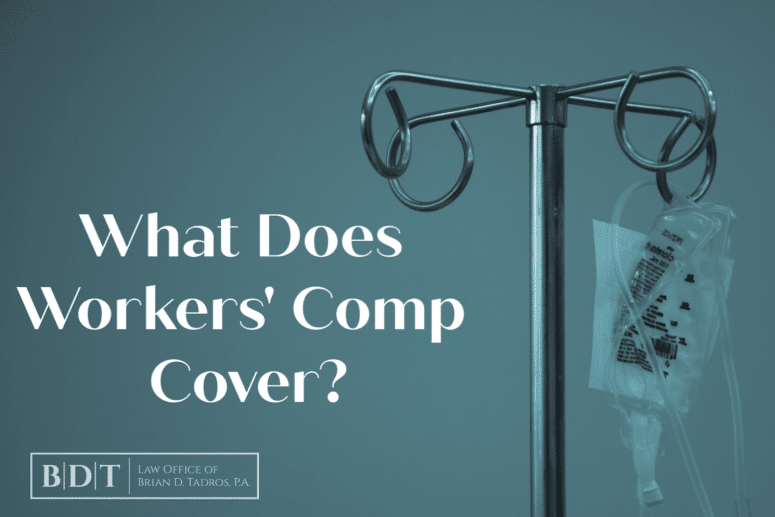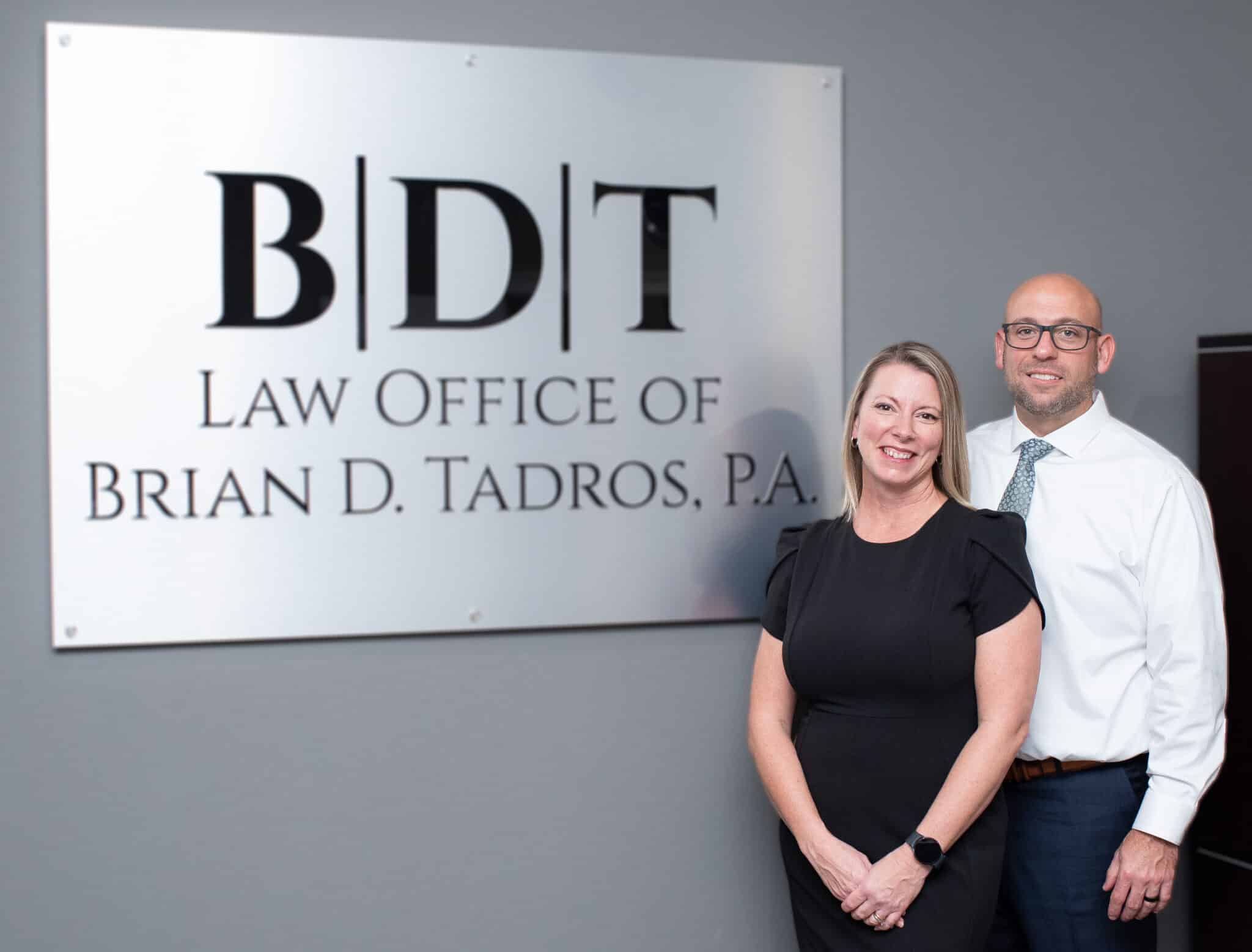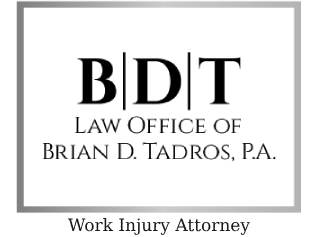
If you’ve been injured in a work-related accident, you probably have several questions…
The most important of which is: “What does workers comp cover?”
No matter how diligent you might be about preventing workplace accidents, they sometimes happen anyway.
That’s the nature of accidental injuries: you don’t usually get a warning that your lifestyle and physical condition are about to drastically change. Which means, when you do get injured, you might be left with dozens of questions about the workers’ comp process.
One of the most important ones being, “What does workers comp cover?”
Aside from missing out on your regular paychecks, you might be facing hundreds of thousands of dollars in medical bills and possibly the loss of your livelihood. It’s important to understand what workers compensation benefits you have so you can prepare for the future.
Injured at Work In Florida?
WHAT DOES WORKERS COMP COVER?
Workplace injuries have far-reaching and long-lasting consequences, and workers compensation benefits were developed to soften your financial burden after an accidental injury or illness caused by your work.
If you have been injured in a work-related accident, here are some of the benefits you can receive from the workers’ compensation insurance company.
MEDICAL TREATMENT
Being injured or contracting an illness due to your job will naturally result in you needing medical attention. But exactly which medical expenses does workers comp cover?

Your employer’s workman’s compensation coverage will pay for your:
- Doctor’s visits;
- Medical equipment;
- Surgery; and
- Prescriptions.
However, be advised that they will only pay for treatment from authorized providers or for treatment that was provided on an emergency basis.
Depending on the circumstances of your case, the insurance company may provide you with authorized medical treatment indefinitely.
For instance, if you have a work-related injury that leaves you permanently disabled and there have been no new accidents that have worsened your work-related condition, the workers’ comp insurance company will cover your long-term medical care as well.
LOST WAGES
Depending on the severity of your injury and the nature of your job, your doctor may require that you do not work for a certain period of time.
In the event that your injury leaves you unable to work (and therefore receive a paycheck), workers’ comp benefits will pay for a portion of your lost wages. In most cases, benefits amount to 66 2/3% of your Average Weekly Wage (AWW), but this can vary if you are working in another capacity while you are recovering from your injury.
VOCATIONAL TRAINING
In the best case scenario, you will recover quickly and suffer no ill effects throughout your lifetime. Unfortunately, this is not always the case.
For some, a workplace illness or injury might leave them permanently disabled in such a way that they cannot return to their prior job duties. In these cases, workman’s comp may cover vocational training and rehabilitation to relearn job skills within your new limitations or train you for an entirely new career.
If you have no backup plan, this can be an incredibly helpful way to get you and your family back on your feet.
FUNERAL COSTS AND DEATH BENEFITS

In the most severe circumstances, a workplace accident doesn’t result in an injury, but in death.
In such cases, workers’ comp would cover the funeral costs of the deceased employee and also pay regular benefits to any surviving dependents.
WHAT’S NOT COVERED
Workers’ compensation insurance is an extremely helpful type of coverage for both employers and employees, but it’s far from being a “carte blanche” solution to any and every form of injury.
Here are a few things that workers’ comp will not cover.
PAIN AND SUFFERING
There is no mechanism under the Florida Workers’ Compensation law for an injured employee to receive compensation for pain and suffering or loss of enjoyment of life resulting from a workplace accident. No amount of lawyering and no amount of sympathy from a judge can provide an injured worker with compensation for these things.
NON-WORK INJURIES
An injury or illness sustained on an employee’s personal time—even if it affects the employee’s ability to do his/her job—will not be covered by workers’ compensation.
INTENTIONAL ACTS
Even if a worker is injured due to their own negligence (perhaps rushing from one place to another) the Florida Workers’ Compensation Law still requires provision of benefits to that worker.
However, an employee who intentionally injures themselves is not entitled to any workers comp benefits. Further, if an employee is injured because of the employee’s knowing refusal to use a safety appliance or observe a safety rule required by law or provided by the employer, the law requires that they receive a 25% reduction in the lost wage reimbursement.

Conclusion
Workplace injuries and illnesses can cause confusing and overwhelming lifestyle changes. But knowing what workers’ comp covers will help you prepare for the future so you can stop worrying about your day-to-day expenses and start focusing on your recovery.
At The Law Office of Brian D. Tadros, P.A., we practice workers’ compensation law and only workers’ compensation law. Our main focus is to act as an advocate and counselor for each of our clients, so that they can make informed decisions and receive the benefits they’re entitled to.
Don’t trust your workers’ compensation claim to the goodwill of your employer or their insurance company. They will be looking out for their own interests. If you’re suffering from a work-related injury, it is in your best interest to have an experienced workers’ comp attorney like Brian Tadros on your side. Call today for a free consultation.

